The Single Tax v World War One (6) March-April 1910
“Never has there been a closer and quicker communication between the thinker and the workman.”
“What change may come, no mortal can tell. But that some great change must come, thoughtful people are beginning to feel. The civilized world is trembling on the verge of a great movement.
Either it must be a leap upward, to advances yet undreamed of — or it will be a plunge downward, carrying us back toward barbarism.”
- Henry George, Progress and Poverty, Ch 42, How Modern Civilization May Decline (1879)
The Liberals had lost their outright majority, opposition to Lloyd George and his land campaign crystallised in the Cabinet. There was talk of party splits, of inviting the Tories to govern. Lloyd George, however, wanted to push through the Budget, then remove the Lord’s budget veto, and anticipated yet another election.
“Lloyd George’s attributes of plasticity, open-mindedness, and impartiality made him attractive to members of the opposition but suspect to fellow Liberals.”
- D.M. Cregier, ‘Bounder from Wales’, Lloyd George’s career before the First World War (1976)
An extraordinary, reckless manoeuvre had checked the Single Tax revolution. The valuation alone, what it would show, was a huge threat. Removal of the Lord’s veto and deeper reform of the Second House now competed for political space. And the government was now dependent on other parties, who had their own agenda - Irish Home Rule would become another deeply divisive headline issue.
But were all of these competing issues simply the land war by proxy?
Note: The election result was evidently still not known to Land Values at this time.
The destruction of landlordism means the weakening of every other privilege
old windmills that are geared to no machinery
“Never has there been a closer and quicker communication between the thinker and the workman.”
Further extracts …
Lloyd George: RURAL INTIMIDATION
QUEEN'S HALL, March 23, 1910.
the mischievous power of feudalism
The progressive forces in this country are bending their energies to the task of uprooting the mischievous power of feudalism. The reactionary elements in the country, on the other hand, are, with the same energy, with the same zeal, but, perhaps, with different weapons, undertaking the task of nourishing and feeding these roots, of strengthening them, and deepening their hold on the soil, and by tariffs and by something they call reform of the House of Lords, real progress in this country is barred in every direction by the feudal power.
Victory in this conflict means the regeneration and the emancipation of Britain
Feudalism is the enemy, and we must deal with it. Victory in this conflict means the regeneration and the emancipation of Britain. Defeat would mean despair and disaster to the British democracy, and I am, therefore, glad to see signs that the democratic and progressive forces in this country are realising the magnitude of the operations in front of us, and are organising for the purpose of dealing with it. The Government have been subjected recently to some criticism from foes, and just a little from friends. Some of that criticism has possibly been justified, and is, therefore, helpful. Some of it, I think I may say a great deal of it, has been dictated by impatience, and is, therefore, superfluous.
there is nothing more baffling to the reformer than the patience of the people with wrongs
This is the first chance I have had of saying a word to our critics. They have criticised for our good : I will return the compliment, and criticise for theirs. The first thing I should like to say is this : there is nothing more baffling to the reformer than the patience of the people with wrongs, except their impatience when they are aroused to a sense of their wrongs. You find the people enduring injustice, oppression, fraud, generation after generation, and without a murmur-just a groan-for centuries. The patience of the people is a marvel of all time. Then suddenly they are stirred up to a sense of the injustice that has been inflicted on them, and when they rise in their might there is nothing which is more baffling than their impatience. They can hardly wait for the counsels of prudence in their efforts to redress wrongs which they have endured for centuries.
but let us go at it scientifically
This is the first thing I have to say now-we engaged in settling the old but heavy account with the House of Lords. (“Down with them !”) I agree; but let us go at it scientifically. ... We are in for a protracted fight, but if we stand together we will win. We want fighting men, and you may depend upon it that our general will lead us on to action. Now I come to business; I am going to talk about the purpose of the Gladstone League. The first essential object of this organisation is to ensure complete protection to the voter in the exercise of his civil rights. After all, the franchise is the most valuable possession of a workman. Is it the only property that is not to be protected by the law of the land ?
intimidation and interference with voters on a scale that is almost unparalleled in modern times
Now, the circumstances of the last election disclosed intimidation and interference with voters on a scale that is almost unparalleled in modern times. Never before has it been quite so barefaced, especially in certain parts of England. The Gladstone League has already investigated a number of cases.
A letter appeared in a local paper somewhere in the South of England in which a Tory put it brutally that if you employ a labourer you expect a "quid pro quo." I should think that “quid pro quo” was the labour, the work that is done. Not at all. The return he expected was that the man should surrender his conscience and soul to the man who employed him. What an arrogant demand!
they woke the spirit of the mountains, the genius of freedom
I was a boy at school then, and I was in the blackest Tory parish in the land. I believe my old uncle, who brought me up, was the only Liberal in the village, so you may guess the sort of time I had. Let me tell you what happened. He was not the only Liberal in the parish. There were three or four others—and I will tell you what happened to them in that election. One or two of them refused to vote for the Tory candidate, and two or three actually went further and dared to record their votes for the Liberal.
After the election notices to quit were showered upon the tenants. What happened? They were turned out by the score on to the roadside because they dared to vote according to their consciences. But they woke the spirit of the mountains, the genius of freedom that fought the might of the Normans for two centuries. There was such a feeling aroused amongst the people that, ere it was done, the political power of landlordism in Wales was shattered, as effectually as the power of the Druids. It is my first memory of politics, and that is why I am proud to be President of the Gladstone League.
They were the great pioneers of Welsh Liberalism. Up to 1868 they all voted with the landlord, but the chains were broken, and they have been free men ever since.
the essence of political independence is economic independence
[T]he essence of political independence is economic independence. That is what we have to do in this country. We have to secure the economic independence of the workman, and we will never do it so long as there is feudalism in the land.
Certainty of work means freedom. It is that certainty, that independence, that we aim at.
Precariousness of work leads to the servitude of the worker. Certainty of work means freedom. It is that certainty, that independence, that we aim at. There was a great judge who once said that the moment a man put his foot on British soil he became a free man. We want to translate that great dictum into reality. Our view, our purpose, the mission of Liberalism is summed up in this—that labour ought never to be the reward of bondage-that labour should ever be the road to freedom.
- David Lloyd George, Better Times, Speeches by the right hon. D. Lloyd George (1910)
The Gladstone League
Partly in response to the January 1910 election the Liberal Party created the Gladstone League both to campaign on free trade and land reform and also to battle voter intimidation.
The Gladstone League sought to organise rural villagers into small, self-governing groups of men and women who would read newspapers together, discuss political questions, and be ready to work, at the next election, ‘to preserve the independence of electors, to secure the supremacy of the House of Commons, to oppose taxes on food of the people, and to establish the people’s rights in regard to the land.’
- Mark Pack, Continuity and change in election campaigns: the 1910 and 2010 election campaigns
A representative government may become a dictatorship without formally changing its constitution or abandoning popular elections.
Unequal distribution of wealth inevitably transforms popular government into despotism. This is not a thing of the far future.
- Henry George, Progress and Poverty, Ch 42, How Modern Civilization May Decline (1879)

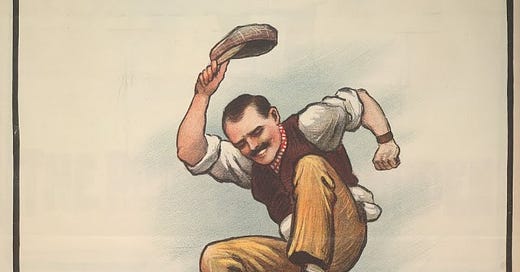



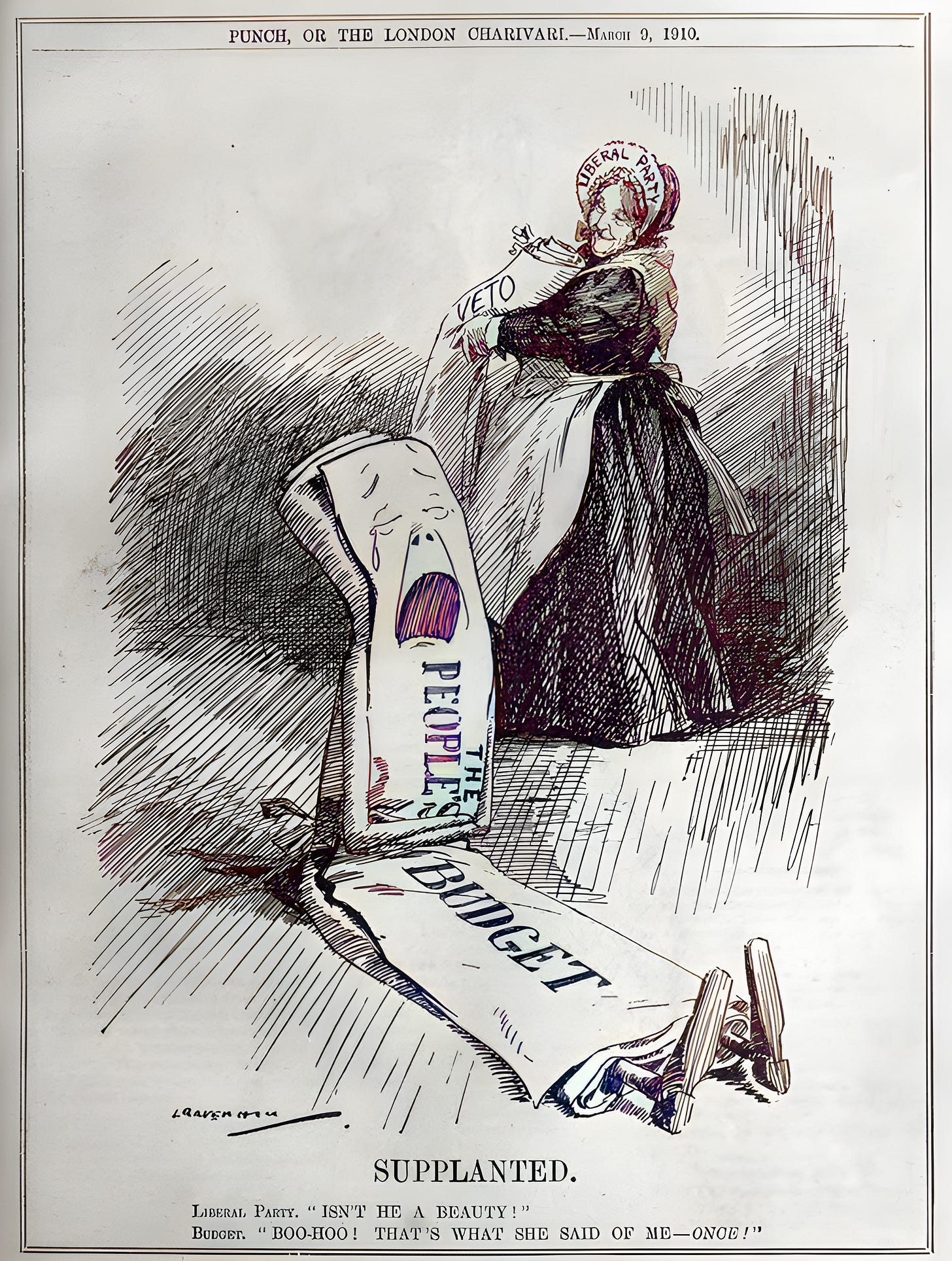











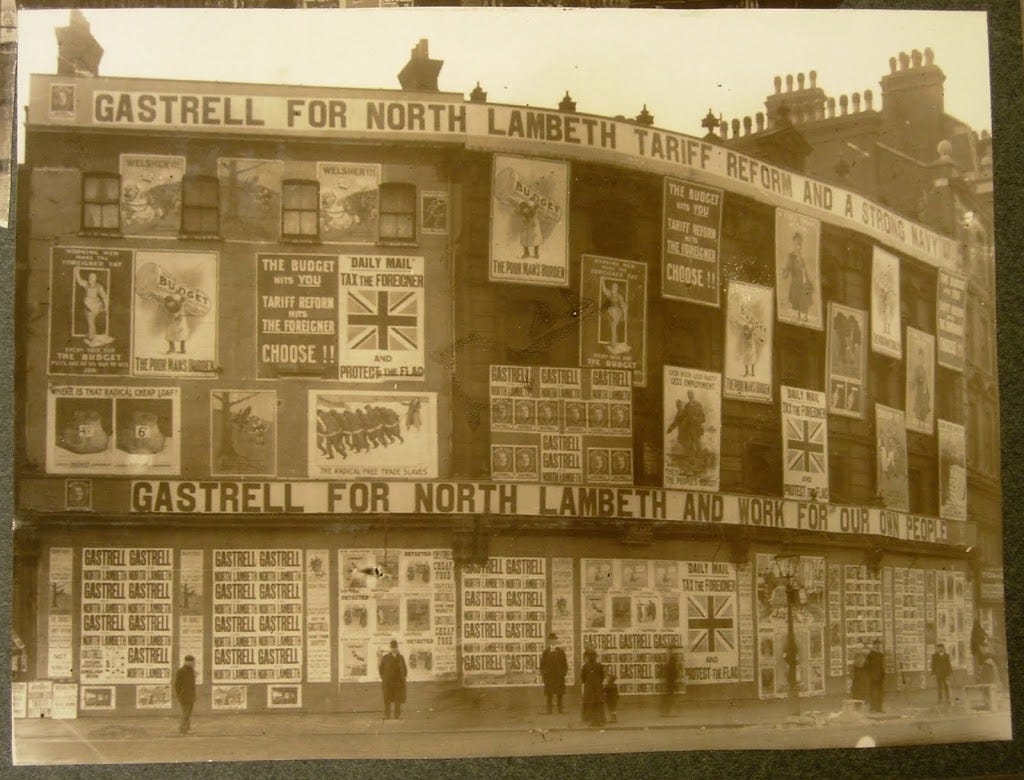
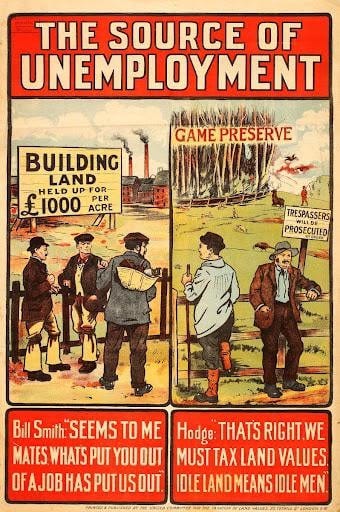
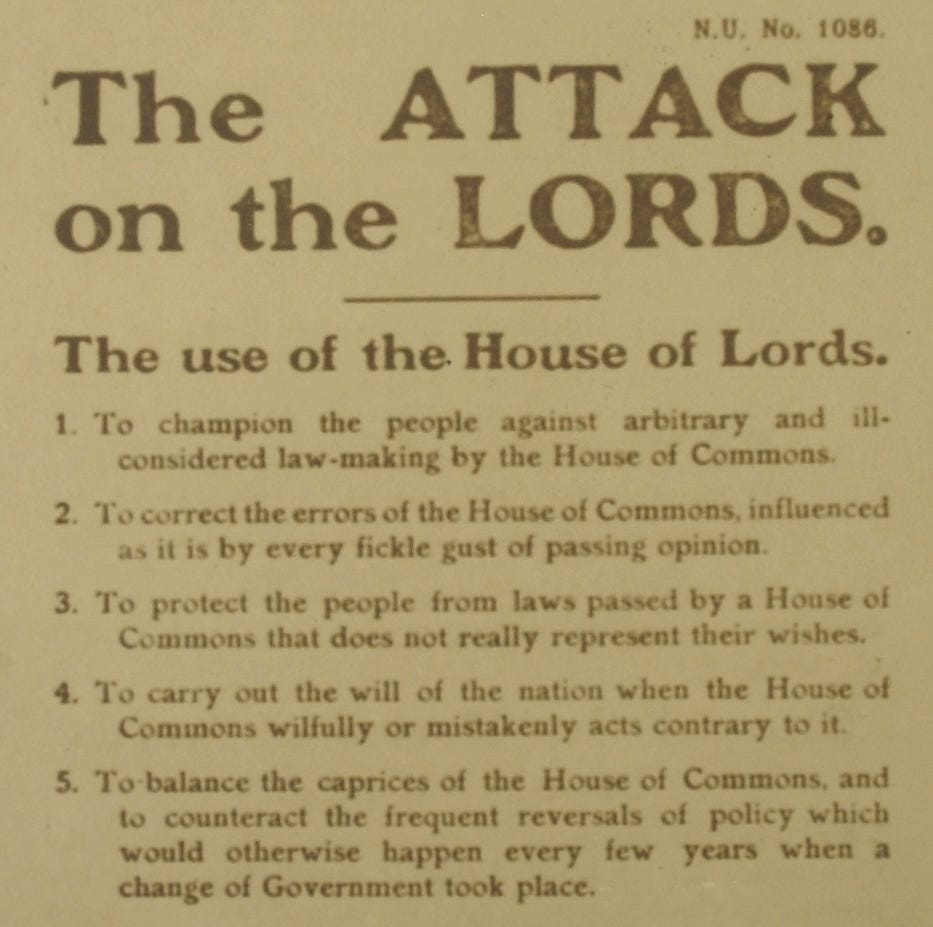






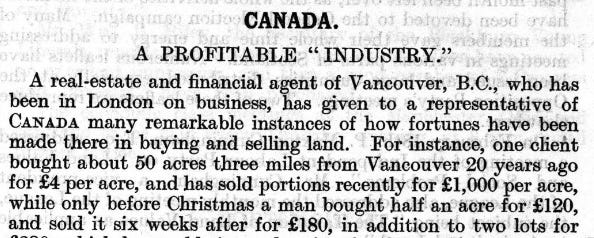

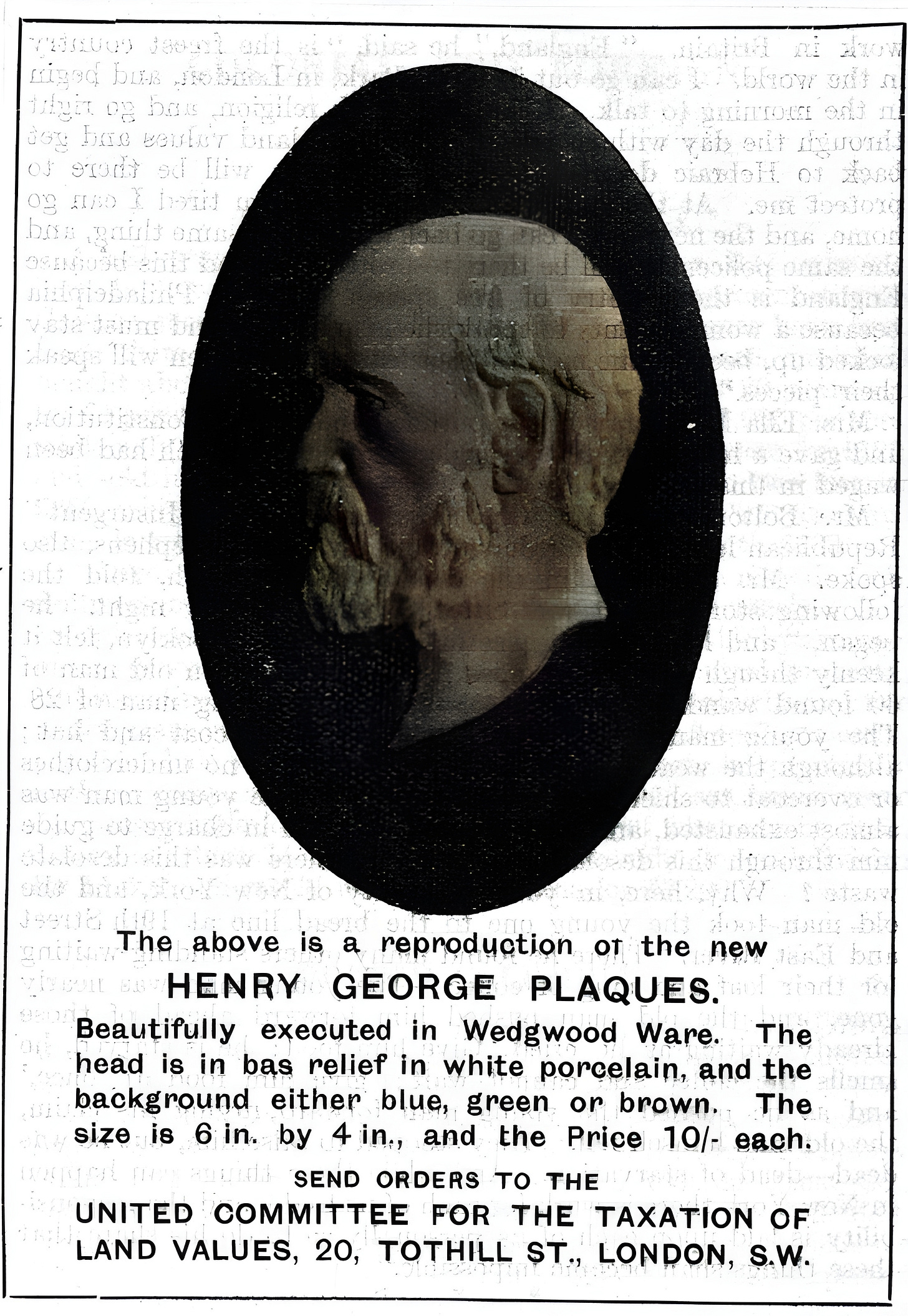

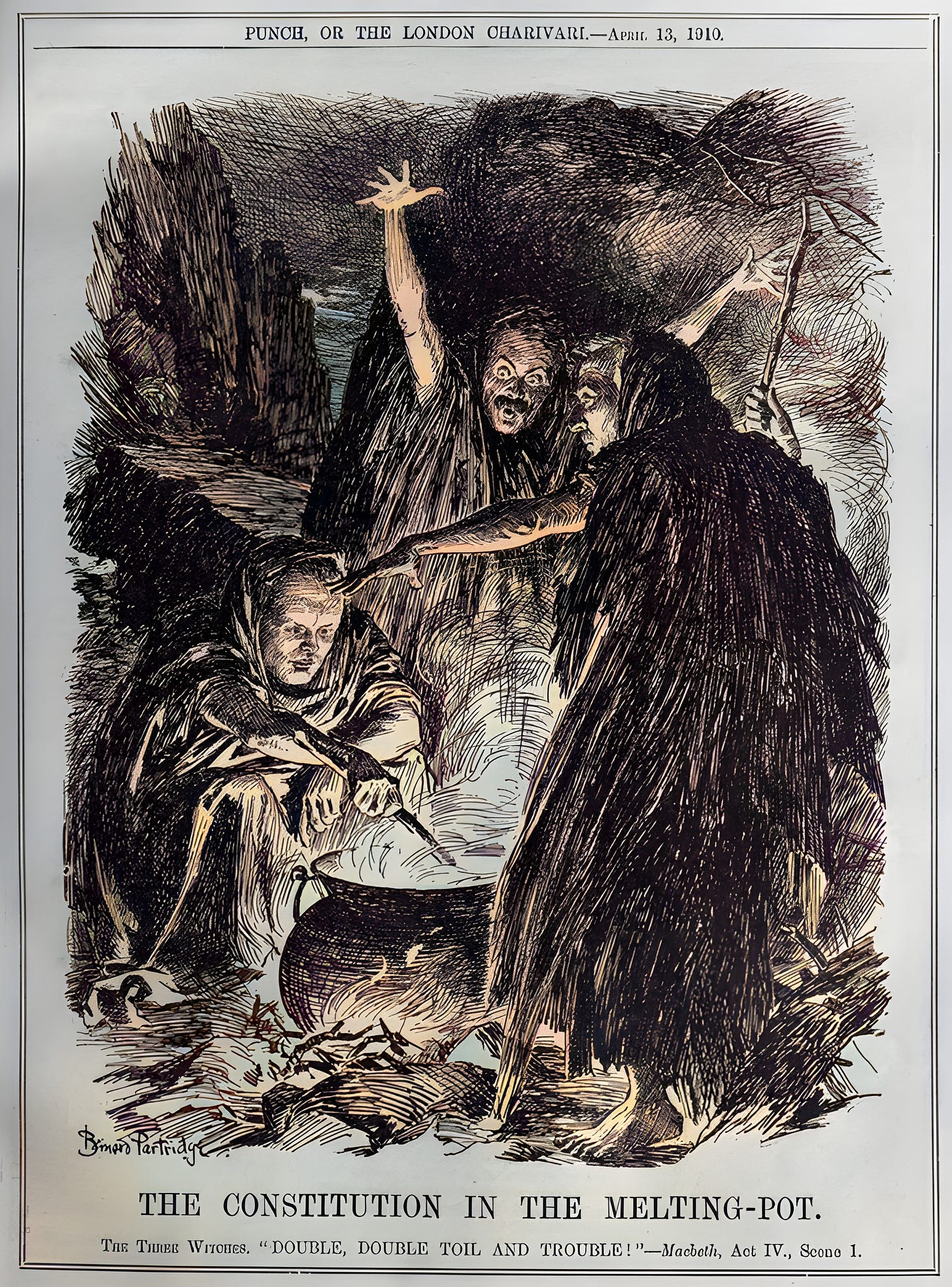
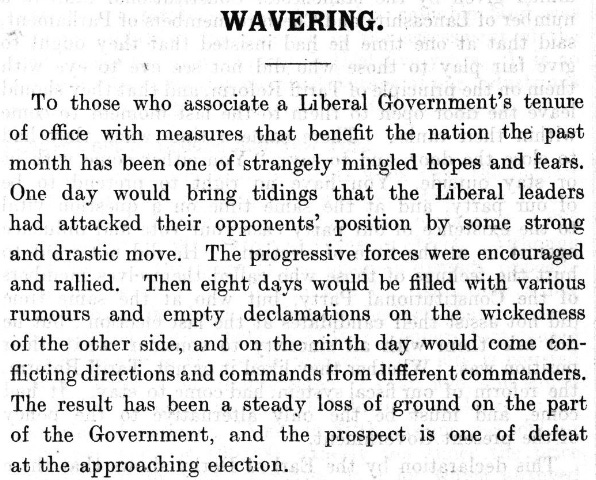




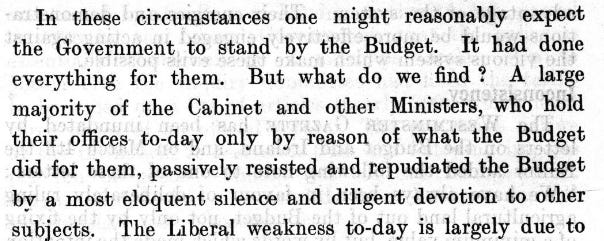


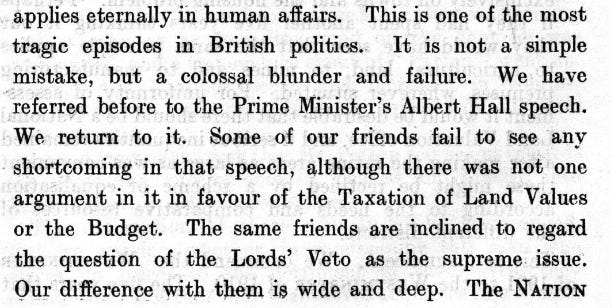


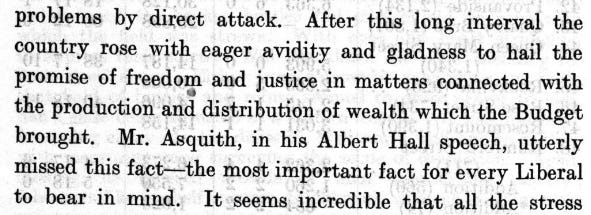

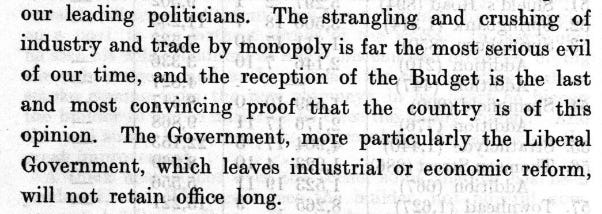







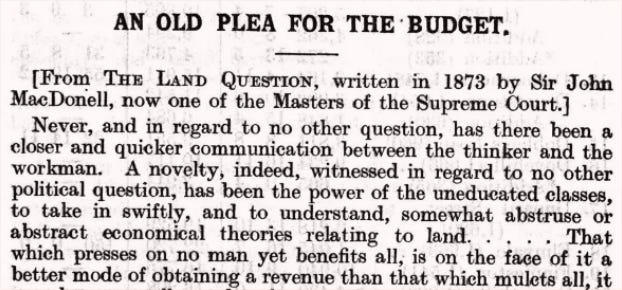





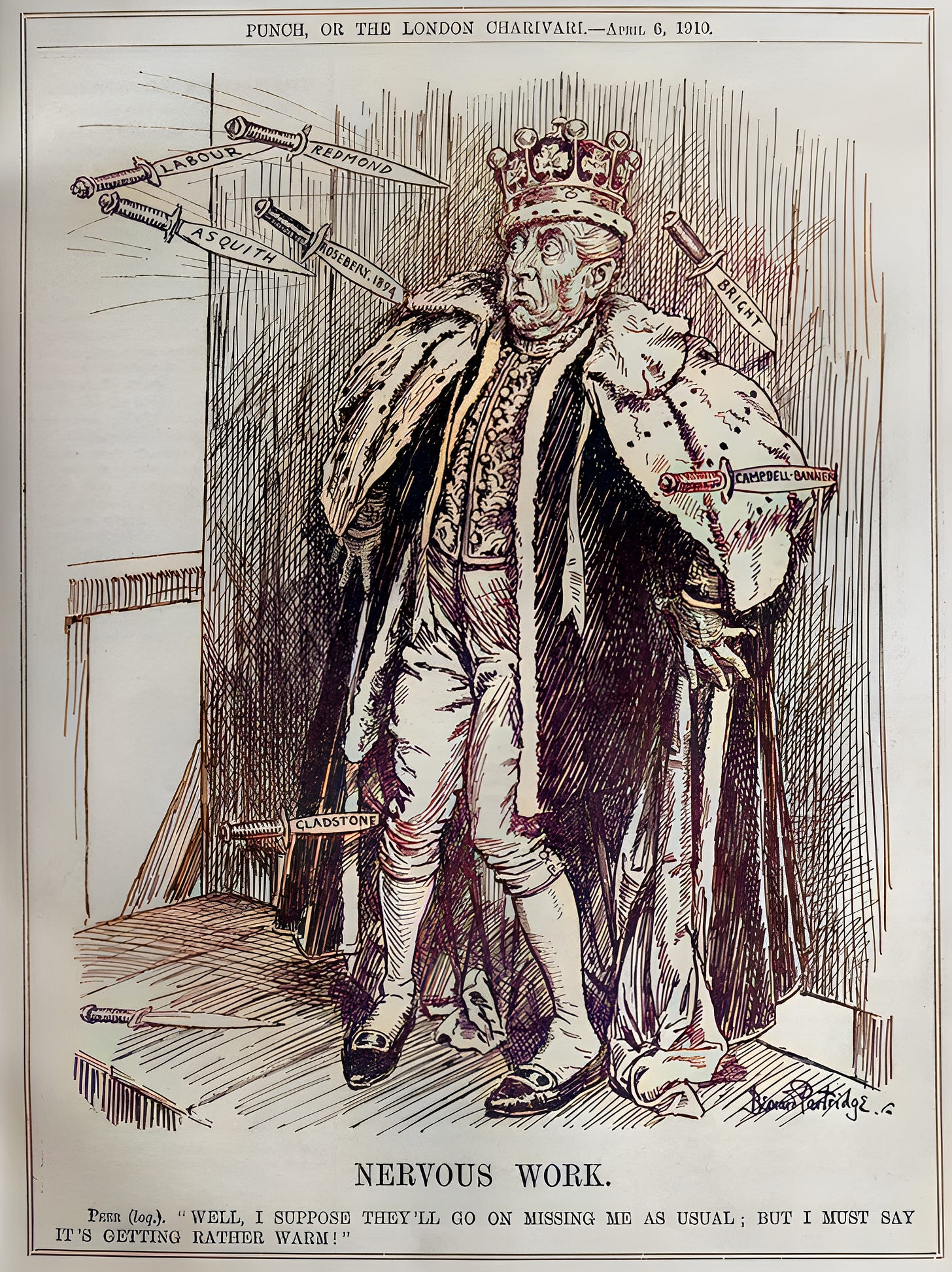















i don't know much of the history of this. from wikipedia, it sounds like the budget did pass and that it established a 20% land value tax along with an income tax. is that correct? what happened with the vancouver single tax system? thanks again for compiling all this.